Filter by
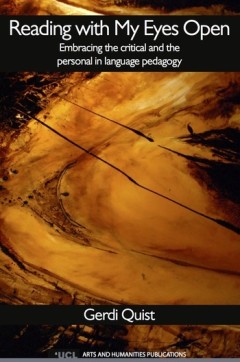
Reading With My Eyes Open: Embracing the critical and the personal in languag…
Untangling the various approaches to language teaching and their history, Gerdi Quist maps recent thinking in language studies at university. Using an interdisciplinary theoretical framework, drawn from educational philosophy, cultural studies, intercultural studies and language pedagogy, the author discusses the many tensions and currents in contemporary language teaching. The author puts forw…
- Edition
- -
- ISBN/ISSN
- 9781909188228
- Collation
- ix, 198p. : ill.
- Series Title
- -
- Call Number
- 418.00711 QUI r
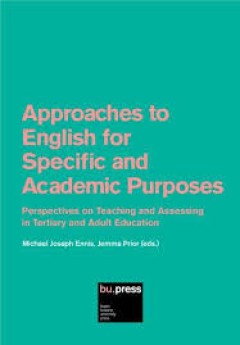
Approaches to English for Specific and Academic Purposes : Perspectives on Te…
This volume presents a selection of eight papers presented at three symposia on English for Specific Purposes (ESP) and English for Academic Purposes (EAP) that were held at the Free University of Bozen-Bolzano, Italy. The experiences detailed in the chapters offer a representative sample of the diversity of approaches to teaching and assessing ESP and EAP that were shared on those occasions. T…
- Edition
- -
- ISBN/ISSN
- 9788860461704
- Collation
- -
- Series Title
- -
- Call Number
- 808.02 ENN a
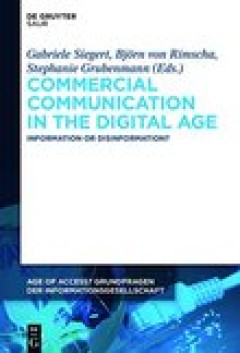
Commercial communication in the digital age
In today’s digital age, online and mobile advertising are of growing importance, with advertising no longer bound to the traditional media industry. Although the advertising industry still has broader access to the different measures and channels, users and consumers today have more possibilities to publish, get informed or communicate – to “co-create” –, and to reach a bigger audienc…
- Edition
- -
- ISBN/ISSN
- 9783110416794
- Collation
- viii, 270p.: ill.
- Series Title
- -
- Call Number
- 302.2309 SIG c
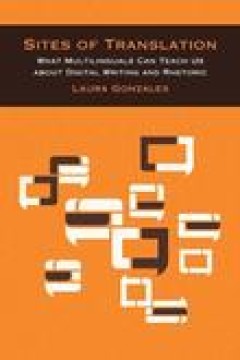
Sites of translation : what multilinguals can teach us about digital writing …
Winner of the 2016 Sweetland Digital Rhetoric Collaborative Book Prize Sites of Translation illustrates the intricate rhetorical work that multilingual communicators engage in as they translate information for their communities. Blending ethnographic and empirical methods from multiple disciplines, Laura Gonzales provides methodological examples of how linguistic diversity can be studied in pra…
- Edition
- -
- ISBN/ISSN
- 9780472124343
- Collation
- -
- Series Title
- XVI, 135 p.
- Call Number
- 418.02 GON s
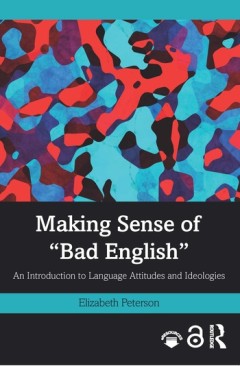
Making sense of "bad English" : an introduction to language attitudes and ide…
Why is it that some ways of using English are considered "good" and others are considered "bad"? Why are certain forms of language termed elegant, eloquent or refined, whereas others are deemed uneducated, coarse, or inappropriate? Making Sense of "Bad English" is an accessible introduction to attitudes and ideologies towards the use of English in different settings around the world. Outlining …
- Edition
- -
- ISBN/ISSN
- 9781138237469
- Collation
- xxiv, 166p. : ill.
- Series Title
- -
- Call Number
- 427 PET m
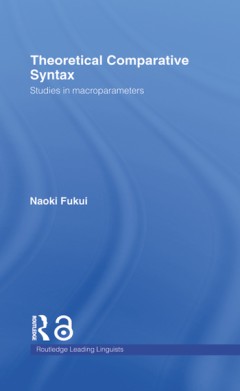
Theoretical comparative syntax : studies in macroparameters
Collected for the first time in a single volume, these essays and articles by Naoki Fukui form an outline of some of the most significant and formative contributions to syntactic theory. Focusing particularly on the typological differences between Eng/type language and Japanese/type languages, Fukui examines the abstract parameters that both link and divide them. Linguistic universals are consi…
- Edition
- -
- ISBN/ISSN
- 9780203479179
- Collation
- ix, 422p. : ill.
- Series Title
- -
- Call Number
- 415 FUK t
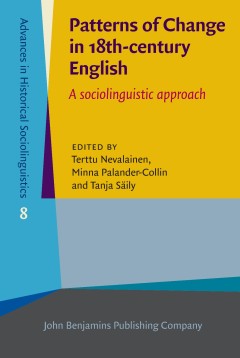
Patterns of change in 18th-century English : a sociolinguistic approach
Eighteenth-century English is often associated with normative grammar. But to what extent did prescriptivism impact ongoing processes of linguistic change? The authors of this volume examine a variety of linguistic changes in a corpus of personal correspondence, including the auxiliary do, verbal -sand the progressive aspect, and they conclude that direct normative influence on them must have b…
- Edition
- -
- ISBN/ISSN
- 9789027263834
- Collation
- xi. 311p. : ill.
- Series Title
- -
- Call Number
- 427.009033 PAT p
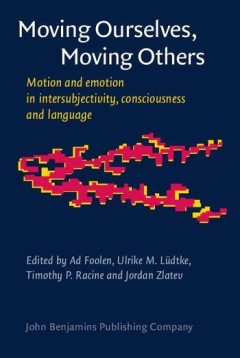
Moving ourselves, moving others : motion and emotion in intersubjectivity, co…
The close relationship between motion (bodily movement) and emotion (feelings) is not an etymological coincidence. While moving ourselves, we move others; in observing others move – we are moved ourselves. The fundamentally interpersonal nature of mind and language has recently received due attention, but the key role of (e)motion in this context has remained something of a blind spot. The pr…
- Edition
- -
- ISBN/ISSN
- 9789027241566
- Collation
- viii, 492p. : ill.
- Series Title
- -
- Call Number
- 401 MOV m
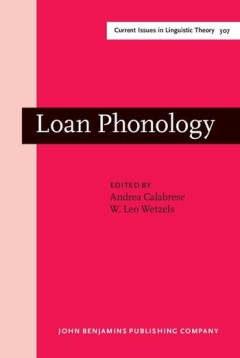
Loan phonology
For many different reasons, speakers borrow words from other languages to fill gaps in their own lexical inventory. The past ten years have been characterized by a great interest among phonologists in the issue of how the nativization of loanwords occurs. The general feeling is that loanword nativization provides a direct window for observing how acoustic cues are categorized in terms of the di…
- Edition
- -
- ISBN/ISSN
- 9789027288967
- Collation
- vii, 273p. : ill.
- Series Title
- -
- Call Number
- 414 LOA l

Language planning as nation building : ideology, policy and implementation in…
The decades around 1800 constitute the seminal period of European nationalism. The linguistic corollary of this was the rise of standard language ideology, from Finland to Spain, and from Iceland to the Habsburg Empire. Amidst these international events, the case of Dutch in the Netherlands offers a unique example. After the rise of the ideology from the 1750s onwards, the new discourse of one …
- Edition
- -
- ISBN/ISSN
- 9789027262769
- Collation
- x, 312p. : ill.
- Series Title
- -
- Call Number
- 306.449492 RUT l
 Computer Science, Information & General Works
Computer Science, Information & General Works  Philosophy & Psychology
Philosophy & Psychology  Religion
Religion  Social Sciences
Social Sciences  Language
Language  Pure Science
Pure Science  Applied Sciences
Applied Sciences  Art & Recreation
Art & Recreation  Literature
Literature  History & Geography
History & Geography